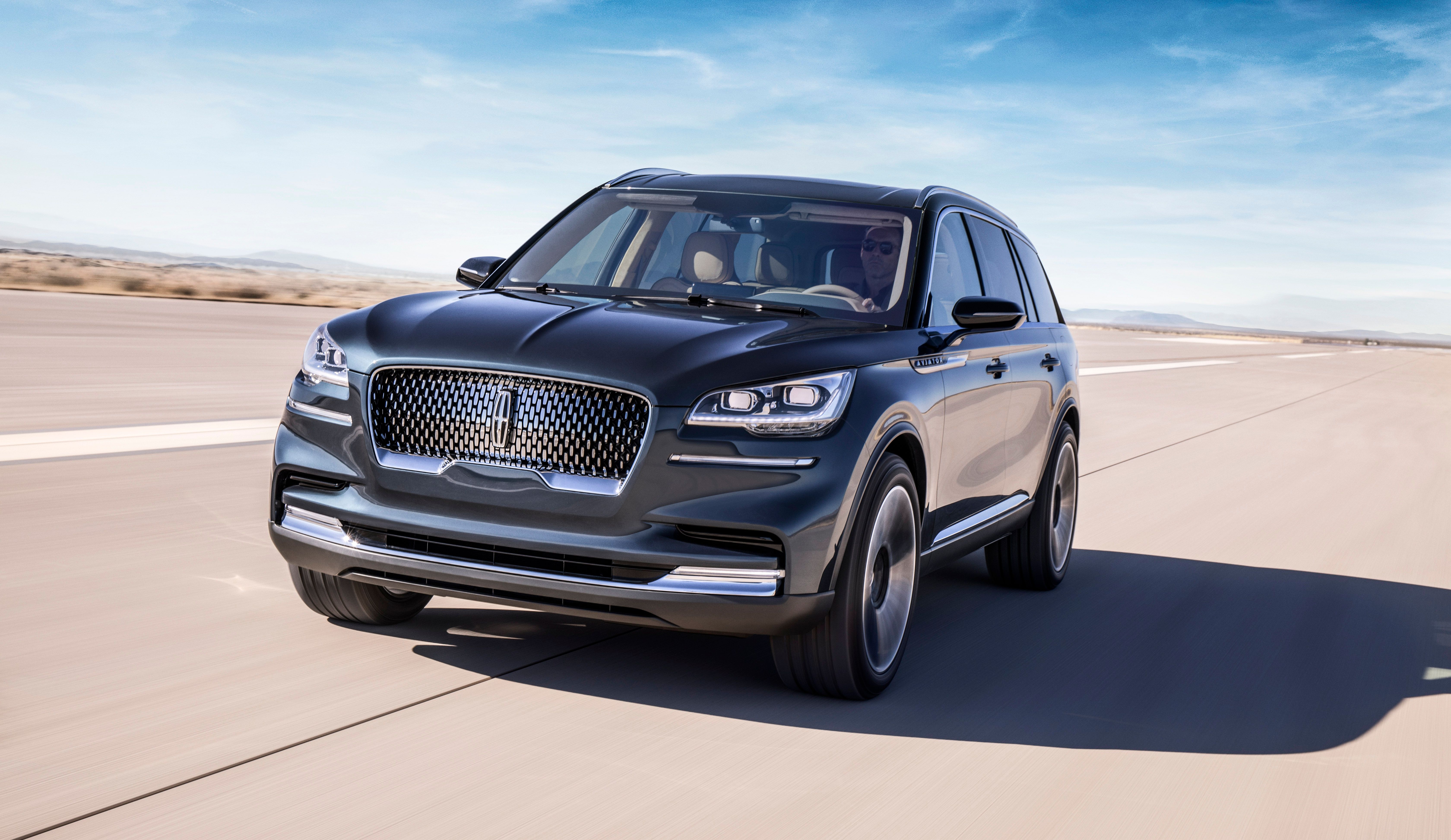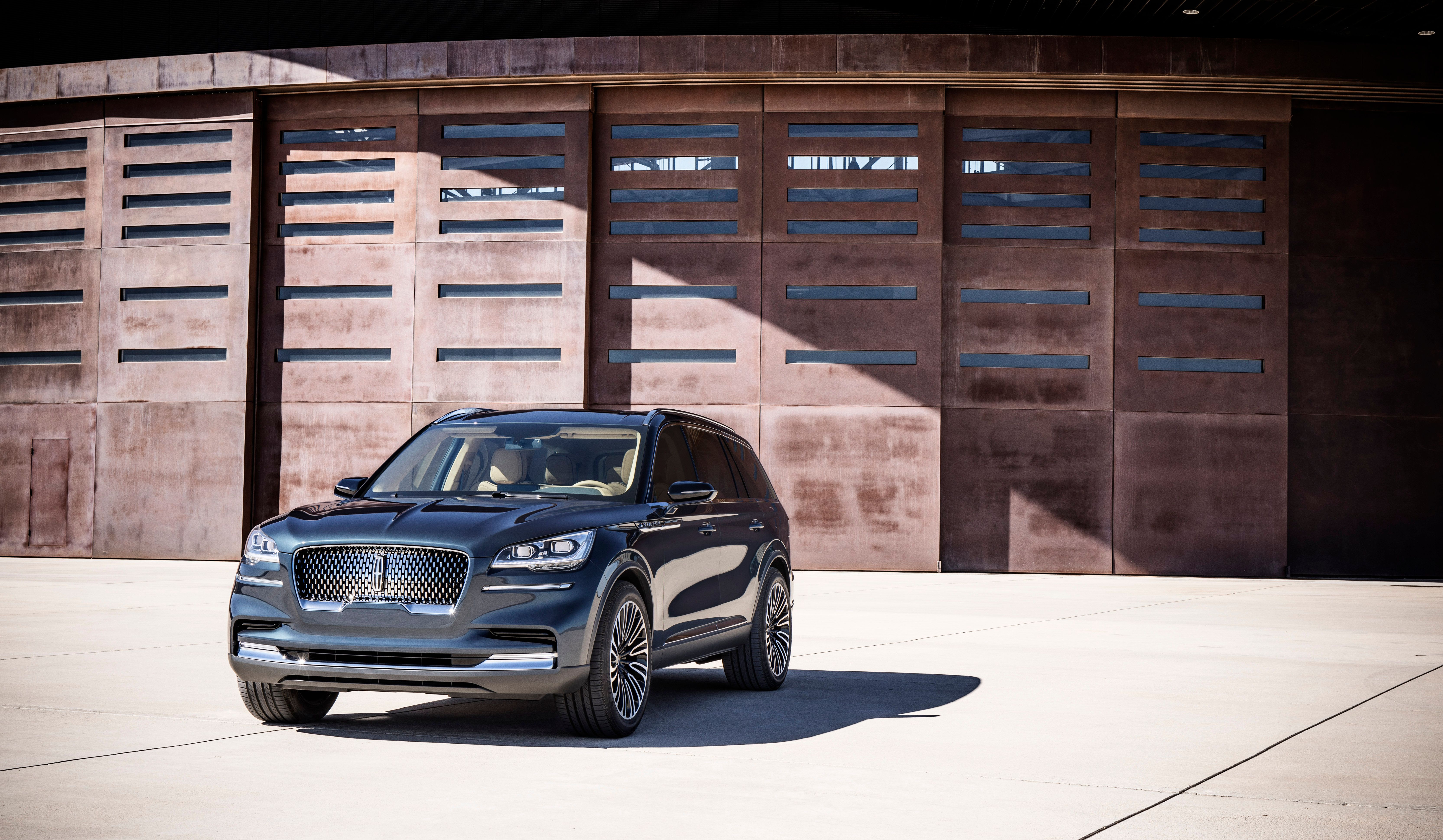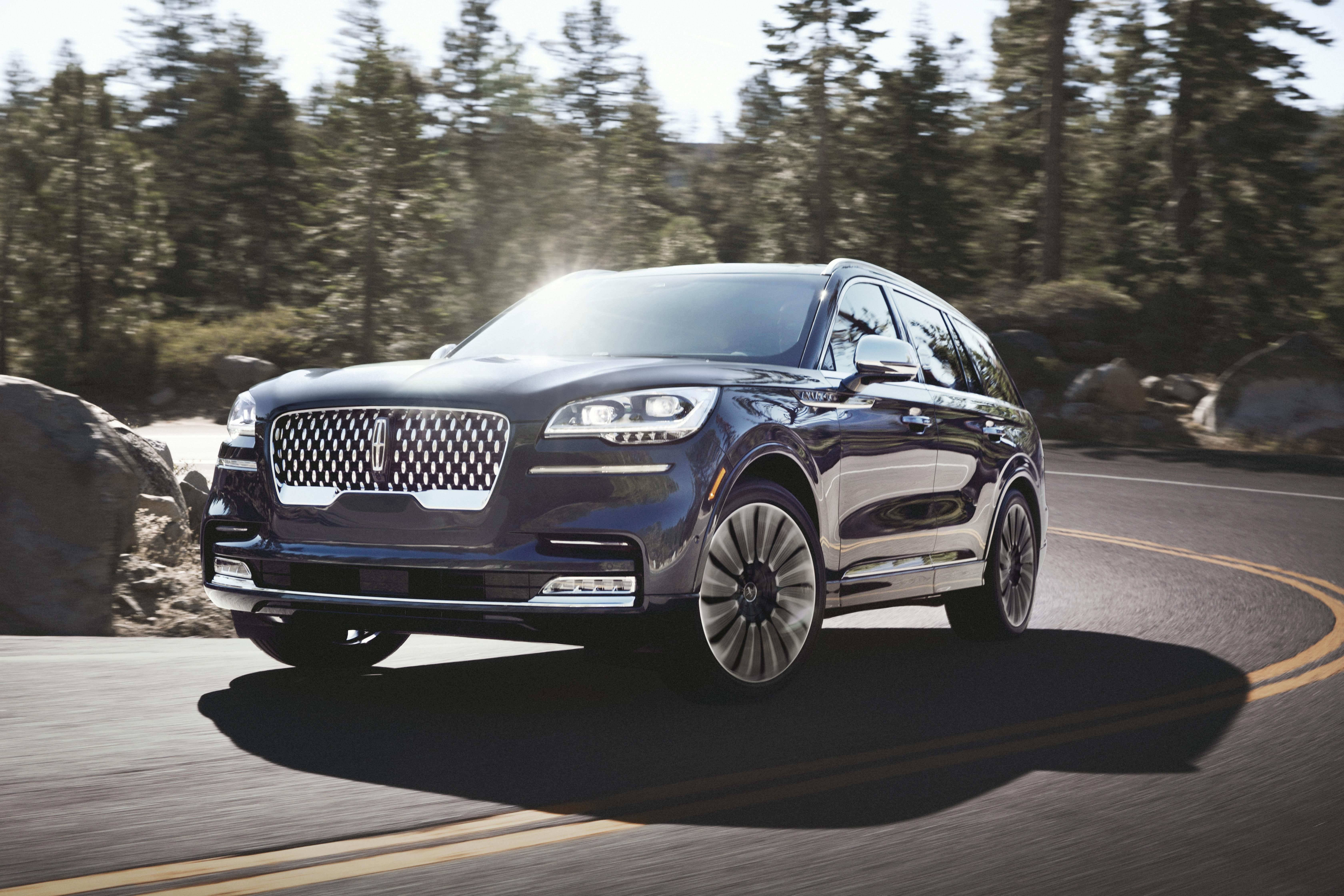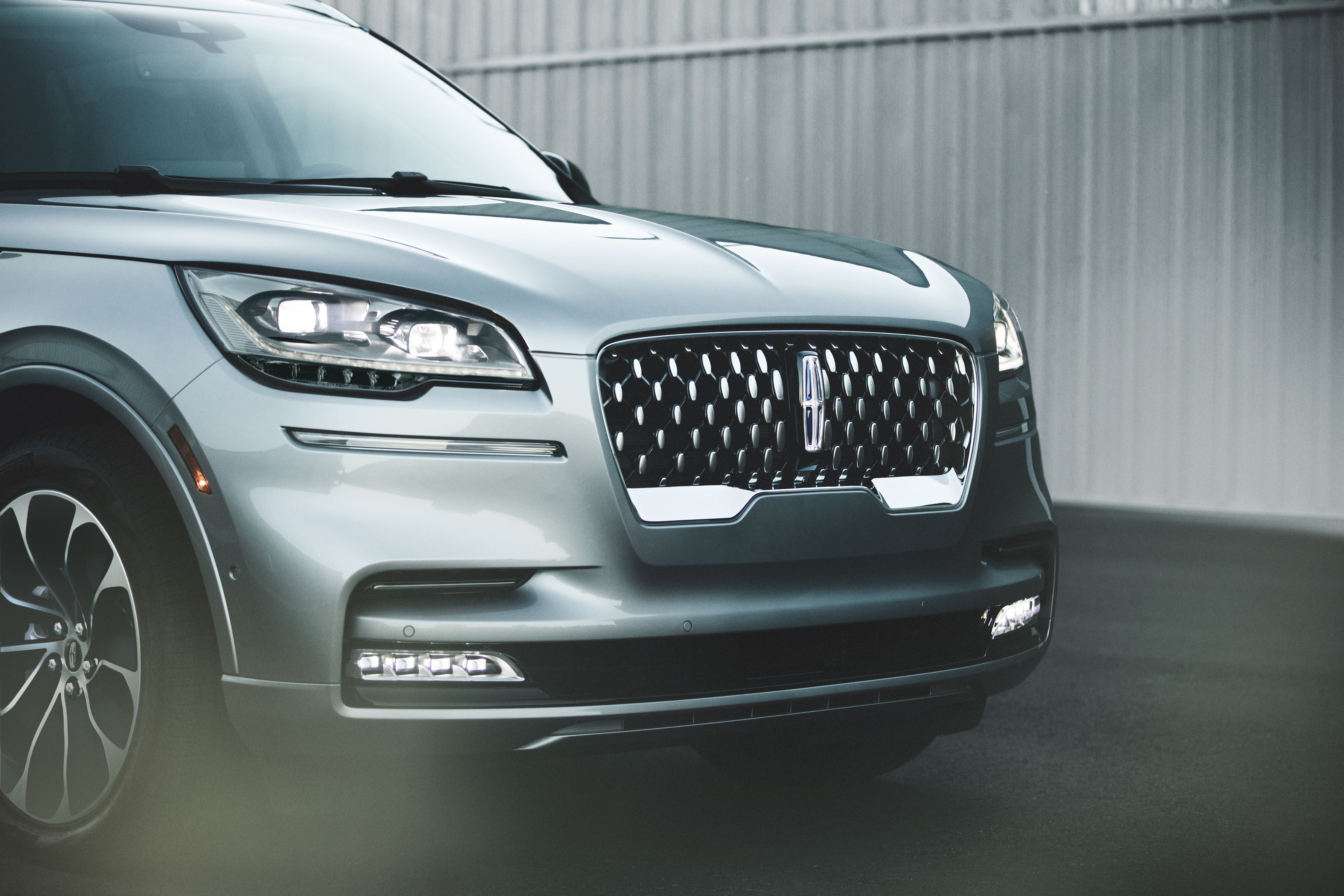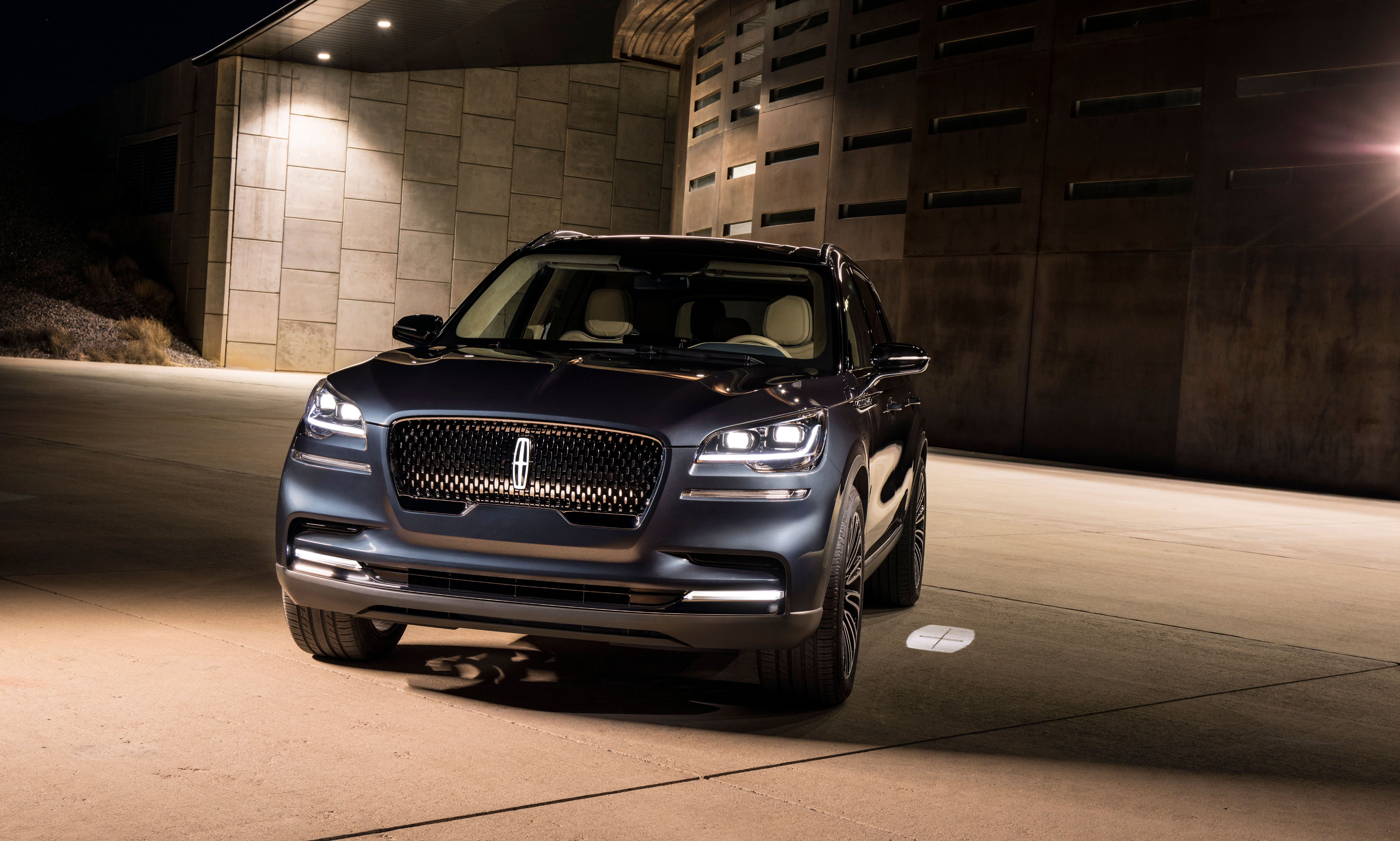Revived in 2019 as a successor for the MKT, the Lincoln Aviator is the company's first SUV to feature a hybrid drivetrain. In 2018, Lincoln revealed preliminary specs for the hybrid, hinting that it will top the range in terms of output. Come August 2019 and the final numbers confirm that the Aviator Hybrid is one of the most powerful gas-electric vehicles on the market.
Expectations vs. the real deal
Lincoln initial estimates for the Aviator Hybrid were placed at more than 450 horsepower and 600 pound-feet of torque. That's an impressive figure, especially for a vehicle wearing the Lincoln badge. To be honest, I wasn't expecting for the final figures to be much higher. Ford's estimates in recent years are pretty close to the real deal, with increases not higher than five or 10 horses and pound-feet. But Lincoln went wild and released final specs that are significantly higher than last year's estimates.
Specifically, the Aviator Grand Touring hybrid will hit dealerships with 494 horsepower and 630 pound-feet of torque on tap. That's an extra 44 horses and 30 pound-feet compared to Lincoln's original estimates. Of the 494 horsepower, 101 comes from the electric motor, while the rest is provided by the 3.0-liter EcoBoost V-6 mill. Compared to the gas-only Aviator, powered by the same EcoBoost mill, the hybrid cranks out an extra 94 horsepower and 215 pound-feet of twist.
These figures also make the Aviator the most powerful vehicle in the lineup, surpassing popular models like the Navigator, Continental, and MKZ. Needless to say, Lincoln hit the jackpot with this vehicle.
The Lincoln Aviator Hybrid packs more punch than the Chevrolet C8 Corvette
We're often tempted to favor sports cars over SUVs, but in some cases the big haulers win the horsepower battle. Granted, this is often true for SUVs from Bentley, Porsche, and Range Rover, but Lincoln pulled an impressive stunt with this hybrid. Still hyped by the new, mid-engined Chevrolet C8 Corvette? Well, the Aviator Hybrid packs more punch. Specifically, the twin-turbo V-6 and electric motor combo delivers four horsepower more than the C8's 6.2-liter V-8. Sure, the Z51 Performance Package places the Corvette one horsepower above the Aviator, but the torque war is clearly won by Lincoln's SUV. At 630 pound-feet with both systems engaged, it's pumps out an extra 160 pound-feet over the Corvette.
Granted, this comparison is far from fair. While the Aviator is a family hauler, the C8 Corvette is full-blown sports car with the engine mounted behind the seats. But it just goes to show that SUVs have evolved so much in recent years that they're entering sports car territory in terms of output and performance. The Aviator Hybrid will never be as quick as the C8 Corvette, but numbers are numbers and on paper the SUV is the more powerful vehicle.
The Lincoln Aviator Hybrid has more torque than some supercars
While it might not be more powerful that most supercars, the Aviator Hybrid packs some serious torque and puts some supercars to shame. At 630 pound-feet of twist, the American SUV boasts more torque than the Ferrari F8 Tributo (568 pound-feet), McLaren 720S (568 pound-feet), Ferrari 812 Superfast (530 pound-feet), and Lamborghini Aventador SVJ (531 pound-feet). It even generates more torque than the McLaren Senna, rated at 590 pound-feet.
The Lincoln Aviator Hybrid rises above the competition
Totally unexpected from a company that never offered hybrid SUVs before, the Aviator is more powerful than most of its competitors, including luxury vehicles.
The Bentley Bentayga Hybrid, for instance, a significantly more expensive SUV, features a similar setup with a twin-turbo, 3.0-liter V-6, but generates less oomph. At 456 horsepower, the Bentayga Hybrid falls behind the Aviator by 38 horses. It also lags behind when it comes to torque, delivering only 516 pound-feet. That's a 114-pound-foot deficit compared to the Lincoln.
The Porsche Cayenne E-Hybrid features the same drivetrain and identical power specs, so it's also an inferior SUV when it comes to performance. But Porsche also offers a Turbo S E-Hybrid variant that combines an electric motor and a 4.0-liter V-8. This SUV is notably more powerful than the Aviator Hybrid at 671 horses, 177 more than the Aviator, but it's only on par in the torque department. At 627 pound-feet, the Cayenne actually generates three pound-feet less than the American SUV.
The Aviator also wins when it comes to pricing. The Grand Touring trim that features the hybrid drivetrain starts from $68,000, which makes it $13,100 more affordable than the Porsche Cayenne E-Hybrid. A comparison to the Cayenne Turbo S E-Hybrid and the Bentley Bentayga E-Hybrid is useless since both fetch more than $160,000 before options.
The Aviator is Lincoln's second hybrid vehicle
While many refer to the Aviator as the first hybrid Lincoln, it's actually the company's second production model with electrification. Lincoln entered the hybrid market in 2011 with the MKZ. Featuring a drivetrain borrowed from the Ford Fusion, the MKZ Hybrid combined 2.5-liter four-cylinder gasoline engine with an electric motor. The sedan wasn't very powerful though, delivering only 191 horsepower with both systems engaged. The latest-generation MKZ Hybrid features a newer 2.0-liter four-cylinder and an electric motor, but total power dropped to 188 horsepower. It's not bad for a sedan, but it's nowhere near as powerful as the Aviator Hybrid.
Further reading
The New Lincoln Aviator Offers Third-Row Seating, Advanced Technology
Read our full review on the 2004 Lincoln Aviator.
Read our full review on the 2018 Lincoln Navigator.

